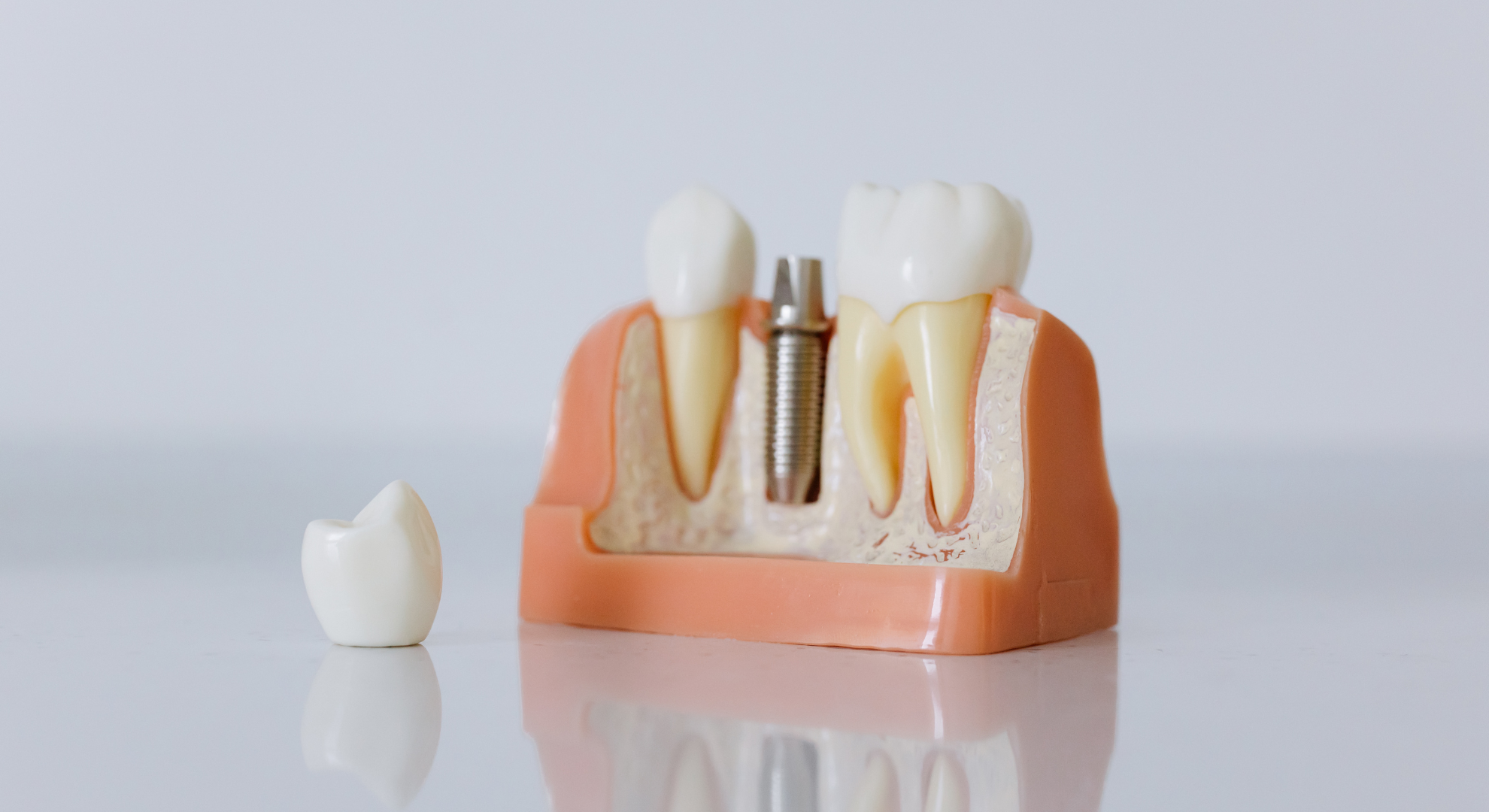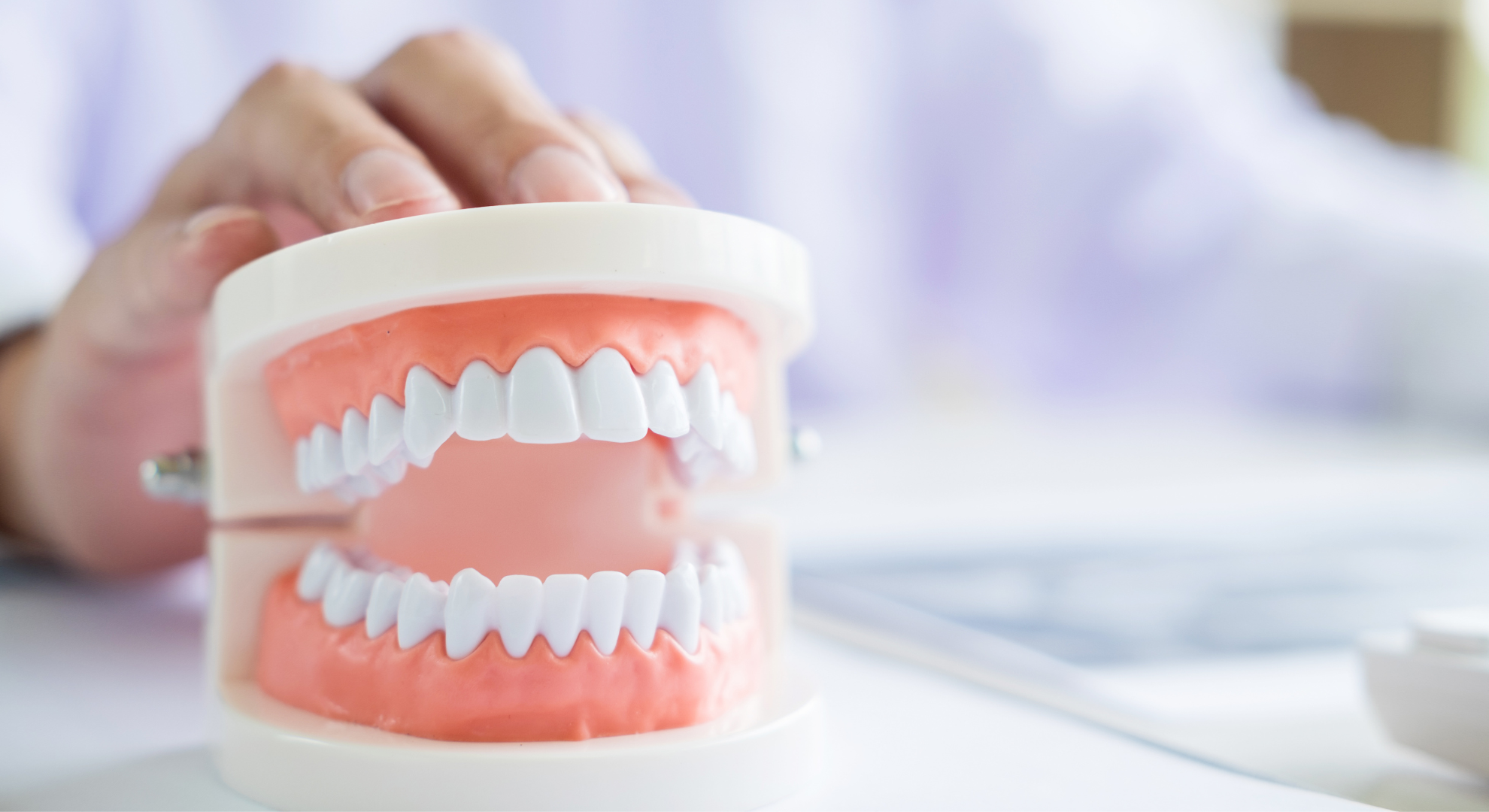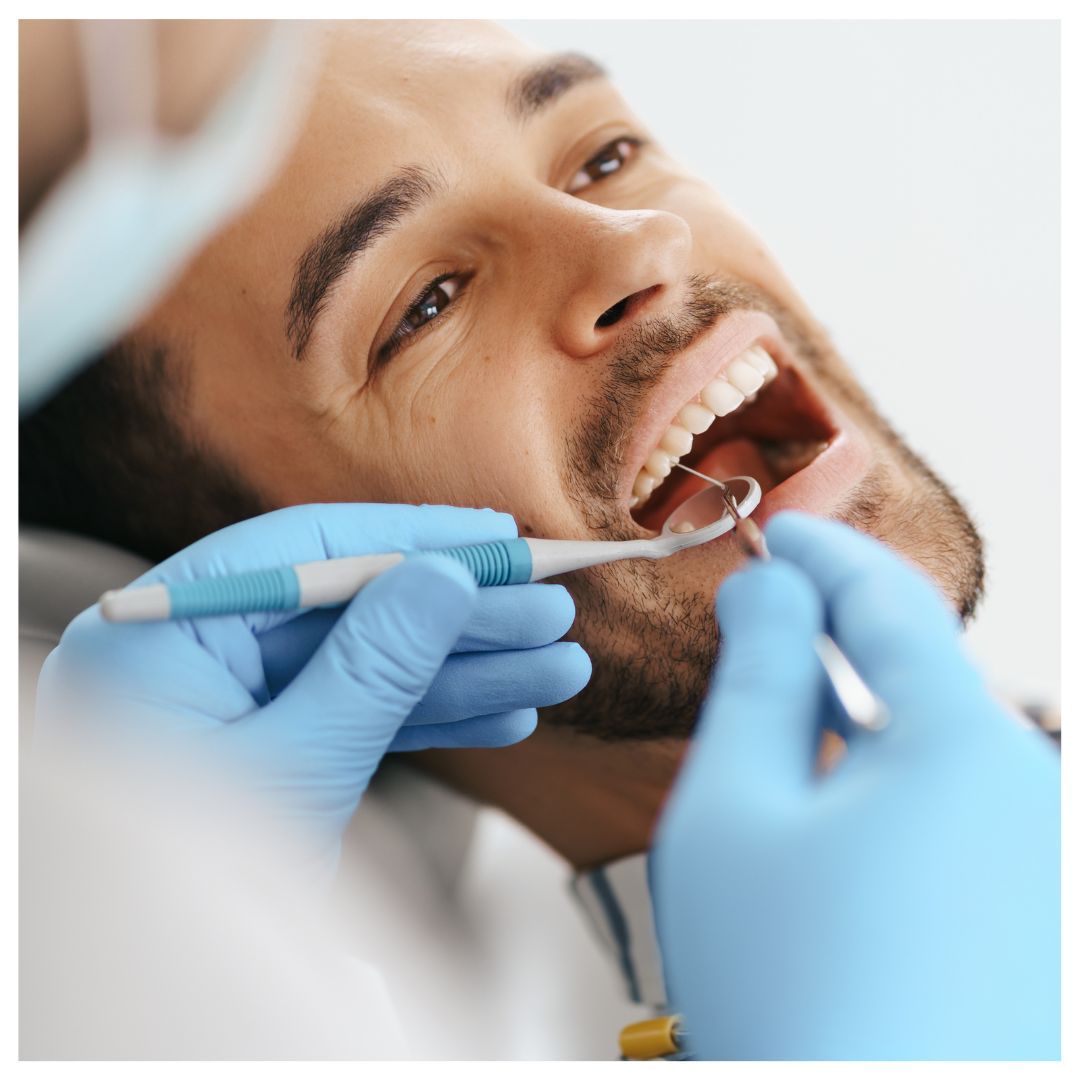Blog
Recent Updates
What Should I Expect During Dental Implant Surgery?
At Perfect Smiles Dentistry, we believe that understanding the dental implant process can alleviate anxiety and help you feel confident about your treatment. If you’re considering dental implants, knowing what to expect during the procedure is essential for a successful experience.
moreHow Do I Know If I Need Dentures?
At Perfect Smiles Dentistry, we understand that the decision to get dentures can feel overwhelming. Knowing when they may be necessary is crucial for maintaining your oral health and overall well-being. If you do require dentures, our expert team is here to provide the quality services you need to improve your oral health. Here are four key indicators that might suggest you need dentures.
moreWhy Choose Perfect Smiles Dentistry for Your Family's Dental Needs in Everett, WA
Choosing a dental care provider is a significant decision for any family. At Perfect Smiles Dentistry, we take pride in offering comprehensive dental services tailored to meet the unique needs of families in Everett, WA. Here’s why we should be your first choice for your family’s dental needs!
moreRoutine Dental Check-ups: Why Prevention is Key to Oral Health
Maintaining oral health is essential for overall wellness, and routine dental check-ups are a cornerstone of effective dental care. At Perfect Smiles Dentistry, we believe that prevention is key to ensuring a bright and healthy smile. Here’s why regular visits to the best local dentist, like Dr. Kavitha Gowda, are essential for optimal dental care.
moreDENTAL CROWNS CAN RESTORE YOUR BEAUTIFUL AND HEALTHY SMILE
A person’s smile is one of the first feature that you notice in his or her appearance. People with a nice, beautiful smile are naturally magnetic and likeable. Unfortunately, if you have cracked, broken or severely decayed teeth, you might be reluctant to show off one of your biggest assets.
Good news is that modern dentistry has a solution for you. If you have a cracked tooth or a tooth that is severely decayed, you could be a candidate for dental crown treatment. According to the American Academy of Implant Dentistry, 15 million Americans have a crown or bridge to replace missing teeth. Dental crowns are designed to protect and strengthen teeth, while also providing aesthetic benefits.
What is a dental crown?
A dental crown is a type of dental restoration, in the form of a tooth-shaped “cap” that is placed over a tooth or a dental implant. Dental crowns are used to cover teeth to restore their shape and size, strengthen them or improve their appearance. Crowns are often needed when a large cavity threatens the ongoing health of a tooth. They are typically bonded to the tooth using a dental cement. When cemented into place, a dental crown fully encases the entire visible portion of a tooth that lies at and above the gum line.
moreENJOY YOUR FAVORITE SPORTS WITHOUT WORRYING ABOUT YOUR SMILE!
Are you or your kids practicing any sports? If you are a professional athlete or you just practice sports for fun, and especially if you do any contact sports, your smile is often at risk of damage. To protect it, Everett dentists recommend that you use a proper mouth guard while enjoying your sports activities.
What is a mouth guard?
A mouth guard is a protective mouth device that covers the teeth and gums to prevent and reduce injuries. It is mostly used in contact sports but could also be a part of certain dental procedures, like tooth bleaching. Depending on their application, mouth guards can also be as mouth protectors, gum shields, gum guards, night guards, or bite splints.
Nowadays, mouth guards have become a standard in many sports. The American Dental Association has made many studies, revealing that mouth guard are extremely effective in preventing facial injuries in sports. The Dental Association recommends mouth guard usage in the following sports: acrobatics, basketball, bicycling, boxing, equestrian, football, gymnastics, handball, ice hockey, inline skating, lacrosse, martial arts, racquetball, rugby football, shot putting, skateboarding, skiing, skydiving, soccer, softball, squash, surfing, volleyball, water polo, weightlifting and wrestling.
moreHOW CAN ORAL SEDATION IMPROVE YOUR EVERETT DENTAL EXPERIENCE?
Are you anxious every time you need to visit your dentist? Apparently, you are not the only one. Statistics reveal that out of 265 million US patients, 145 million experience serious anxiety prior dental visit. Further to that, nearly 15% of American adults are avoiding going to the dentist because of fear and anxiety about dental treatment.
One of the best options for overcoming anxiety and having a relaxed experience in the dental office is oral sedation. It is a great solution for all dental procedures – from simple ones, like tooth cleaning to more complicated and invasive treatments.
What is Sedation Dentistry?
Sedation dentistry is the practice of using sedatives to help patients relax during dental treatment. It is often called “sleep dentistry,” although that’s not entirely accurate. Patients are usually awake except for those who are under general anesthesia. Therefore, the term “comfort dentistry” is more accurate to describe sedation dentistry.
The following types of sedations are available, based on the levels of sedation used:
• Minimal sedation -you are awake, but you feel more relaxed.
• Moderate sedation – you may slur your words when speaking and not remember much of the procedure.
moreINVISALIGN IS THE MOST CONVENIENT ORTHODONTIC OPTION FOR ACHIEVING THE SMILE OF YOUR DREAMS
Are you perfectly confident with your smile? Or are you one of 50% Americans, who are not satisfied with their smile appearance? Since few of us are blessed with a naturally beautiful smile, it is not surprise than more than 50% of Americans are relying on their professional dentists to help them achieve one. One of the best and most preferred options for getting the smile of your dreams is going through orthodontic treatment. In fact, there are more than 5 million Americans, who are currently doing so.
One of the most popular methods in orthodontics are braces. But many adults are concerned about wearing them, mainly because they are visible and could cause some irritation and discomfort. To transform your smile without interfering with your day-to-day life, the best solution for you is called Invisalign.
What is Invisalign?
The Invisalign treatment consists of a series of clear, removable aligners that you change every two weeks for the next set of aligners. Each aligner is individually manufactured for your teeth only. As you replace each aligner, your teeth will move little by little, until they have straightened to the final position prescribed by your Everett dentist.
moreA BRILLIANT AND NATURAL LOOKING SMILE WITH DENTAL VENEERS
Nothing is more appealing in a person’s appearance, than a beautiful, white smile. Not only it can make you look more attractive, but it has also proven to be a key to success in professional life. If you are one of 90 % Americans, believing that a perfect smile can improve your quality of live and you have discolored, uneven, or just plain unattractive teeth, you can simply enhance your smile by covering up your imperfect teeth with paper thin, attractive dental veneers.
What are dental veneers?
Dental veneers (also known as porcelain veneers or porcelain laminates) are thin, custom-made shells of tooth-
DENTAL VENEERS FROM PERFECT SMILES DENTISTRY, EVERETT CAN GIVE YOU THE SMILE OF YOUR DREAMS.
colored dental porcelain, designed to cover the front surface of teeth to improve your appearance. These shells are bonded to the front of the teeth changing their color, shape, size, or length.
Apart from porcelain, dental veneers can be made from resin composite materials. However, porcelain veneers resist stains better than resin veneers and better mimic the light reflecting properties of natural teeth.
moreHOW CAN DENTAL IMPLANTS IMPROVE THE QUALITY OF YOUR LIFE?
Are you happy with your smile? Most Americans believe a healthy and beautiful smile is an important social asset and yet, there are more than 20 million people in the U.S. who are missing all of their natural teeth! It has been estimated that nearly 70% of all Americans, aged 35 to 44 have at least one missing tooth, and one in four over the age of 74 have lost all their natural teeth!
DENTAL IMPLANTS FROM PERFECT SMILES DENTISTRY CAN GRADUALLY IMPROVE THE QUALITY OF YOUR LIFE
The above statistics are quite disturbing, as patients with missing teeth may not experience any pain or discomfort, but the loss of one or more teeth can cause jaw bone loss and other oral health issues over time. The lack of jawbone stimulation can make the jaw bone deteriorate and this can create issues with the bite. And as teeth loss can affect your physical appearance and health, it can also affect your self- esteem and overall well-being due to a reduction in the ability to chew and speak.
If you are missing a tooth or several teeth, dental implants are an attractive solution for replacing them and the results could be lasting a lifetime with proper care.
moreTHE ENEMY OF HEALTHY TEETH – SUGAR
You have probably often heard that sugar is bad for the teeth. We all know that eating a lot of sweets and sugary products leads to cavities, but how exactly does this happen? What makes sugar so unhealthy for the teeth?
How do cavities appear?
According to the National Institute of Dental and Craniofacial Research, the mouth contains hundreds of different bacteria strains. Some of them are beneficial to your body. Other aren’t. Your mouth is an ecosystem where the good bacteria balance the bad ones and keep them under control with the help of saliva. When bad bacteria feed and increase in numbers, they give off acid that destroys the enamel (the protective layer of your teeth). Cavities are nothing but bacterial infections resulted from the acid attacks. They create holes in your teeth and can appear anywhere, from areas that are visible to the naked eye to areas that are hidden, such as between your teeth. Where does sugar come in this equation? Well, sugar is the favorite bacteria food, for starters.
Sugar & pH
As there are frequent acid attacks on your teeth, the pH in your mouth is constantly changing. When you consume sugar, the bacteria feed on it and release acids, leading to a high acidity in your mouth. The acidity causes teeth to lose minerals and, in time, this will lead to cavities and dental erosion.
moreFIVE THINGS YOU SHOULD KNOW ABOUT TEETH WHITENING
Brushing your teeth every day helps keep your teeth white and bright. But even so, most people are still not satisfied with their smile. The ADA (American Dental Association) discovered that 90% of the people want to improve the color of their teeth. Do you want to whiten your teeth? Here are the most common asked questions about teeth whitening process.
Why teeth change their color
Over time teeth lose their color for multiple reasons, such as:
• Foods and drinks. Coffee, red wine, and tea are some of the primary culprits. They all have intense color pigments (chromogens) that attach and enter in the enamel cracks.
• Tobacco use. There are two chemicals (tar and nicotine) which are found in tobacco and can discolor your teeth. Nicotine is colorless until it combines with oxygen, turning yellow, and tar is naturally dark.
• Age. The enamel is white, but the dentin (which is the interior) is yellow. Over time, the enamel gets thinner and thinner due to acids and brushing, making dentin more visible.
• Trauma. Darkened teeth can be the result of particular medication, such as antihistamines, and antipsychotics, antibiotics, and many others. Chemotherapy to the head and neck can also make your teeth lose their color.
moreDENTAL CARE FOR SENIOR CITIZENS
Aging makes way for a long series of health problems, including dental problems. But age is not the sole factor that affects the oral health of elder people. In this article, you will learn about some of the issues that affect the elderly and what you should do in those cases.
Dental and oral problems
1. Darkened teeth. The interior of the tooth (the dentin) is not white. With age, the exterior of the teeth (the enamel) which is white will become thinner, showing the color of the dentin, causing discoloration.
2. Dry mouth. The dryness of the mouth is the result of reduced saliva flow, and it does not come with age. Dry mouth can be the result of cancer treatment with radiation to the neck and head, or the side-effect of certain medication. If you think medication is causing the dry mouth, contact a dentist to offer you an alternative.
3. Root decay. This condition results from the exposing the tooth’s root to acids. The root of the teeth can become exposed if the gum tissue recedes. Enamel does not protect the teeth under the gum line. Gum disease can cause the gum tissue to recede.
4. Gum disease. The plaque that accumulates due to improper oral hygiene can cause gum disease. Using tobacco and poor-fitting dentures or bridges can also cause gum disease. This is a common problem that affects older adults.
morePREVENTION IS THE BEST TREATMENT WHEN IT COMES TO ORAL HEALTH
Have you ever thought how good care do you take of your teeth and gums? Think how often do you brush and floss? If you do that on a regular basis, you should be proud of yourself, as not many Americans can boast with good dental hygiene. In fact, it is less than 30% of American adults, who brush their teeth after every meal and less than 50%, who floss every day. In addition, more than 18% never floss!
Even if you are very diligent with your oral care at home, however, you still need to see a professional dental specialist at least once per year to do that extra bit more that is critical to your health, and that is professional teeth cleaning.
Why do I need a professional teeth cleaning?
No matter how good you are with brushing and flossing at home, there are harmful bacteria that can still grow in your mouth and can only be removed by a dental professional. These bacteria can cause gum disease, and significantly affect your overall health. To maintain optimal oral health, one of the best things you can do is have your teeth professionally cleaned throughout the year. Professional cleaning is a relatively simple preventive process that ensures your gums and teeth are free of bacteria and plaque that can cause tooth decay, gum disease, and a number of other health problems and diseases, including diabetes, certain types of cancer, and heart disease.
moreDENTAL CROWNS CAN RESTORE YOUR BEAUTIFUL AND HEALTHY SMILE
A person’s smile is one of the first feature that you notice in his or her appearance. People with a nice, beautiful smile are naturally magnetic and likeable. Unfortunately, if you have cracked, broken or severely decayed teeth, you might be reluctant to show off one of your biggest assets.
Good news is that modern dentistry has a solution for you. If you have a cracked tooth or a tooth that is severely decayed, you could be a candidate for dental crown treatment. According to the American Academy of Implant Dentistry, 15 million Americans have a crown or bridge to replace missing teeth. Dental crowns are designed to protect and strengthen teeth, while also providing aesthetic benefits.
What is a dental crown?
A dental crown is a type of dental restoration, in the form of a tooth-shaped “cap” that is placed over a tooth or a dental implant. Dental crowns are used to cover teeth to restore their shape and size, strengthen them or improve their appearance. Crowns are often needed when a large cavity threatens the ongoing health of a tooth. They are typically bonded to the tooth using a dental cement. When cemented into place, a dental crown fully encases the entire visible portion of a tooth that lies at and above the gum line.
moreHOW A SMILE MAKEOVER CAN CHANGE YOUR LIFE?
Do you want to be more attractive and more successful in life? There is one simple solution. Smile! Research has proven that we find others more attractive when they are wearing a smile. In addition, recent studies reveal that better looking smile can make you look more successful, more employable and more attractive.
In figures, 88% of Americans believe an unattractive smile makes a person less appealing to members of the opposite sex. Furthermore, 74% of adults feel an unattractive smile can hurt a person’s chances for career success. To conclude, over a quarter of American adults believes that a better smile can improve their quality of life.
But what if you are self-conscious about your smile? Then, you should know you are not the only one. In fact, recent studies show that only 50% of adult Americans are satisfied with their own smile!
Well, you should also know that there is a solution for your problem, called smile makeover! If you have uneven, discolored or even missing teeth, you can undergo a smile makeover to achieve a beautiful smile! Professional dentists can offer you a customized plan that could include bonding, porcelain veneers, implants and teeth whitening. The smile makeover can correct almost everything you dislike about your smile!
moreWelcome
Welcome to our site! We are in the process of building our blog page and will have many interesting articles to share in the coming months. Please stay tuned to this page for information to come. And if you have any questions about our business or want to reach out to us, we would love for you to stop by our contact page.
Thank you!
more



